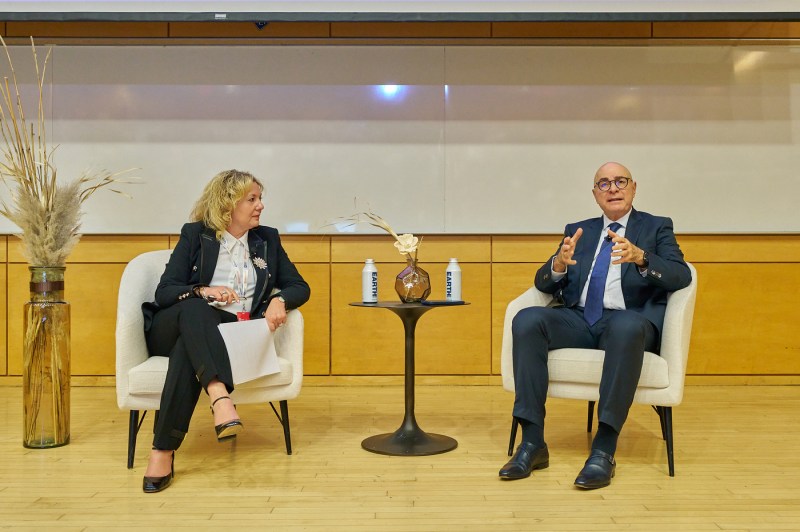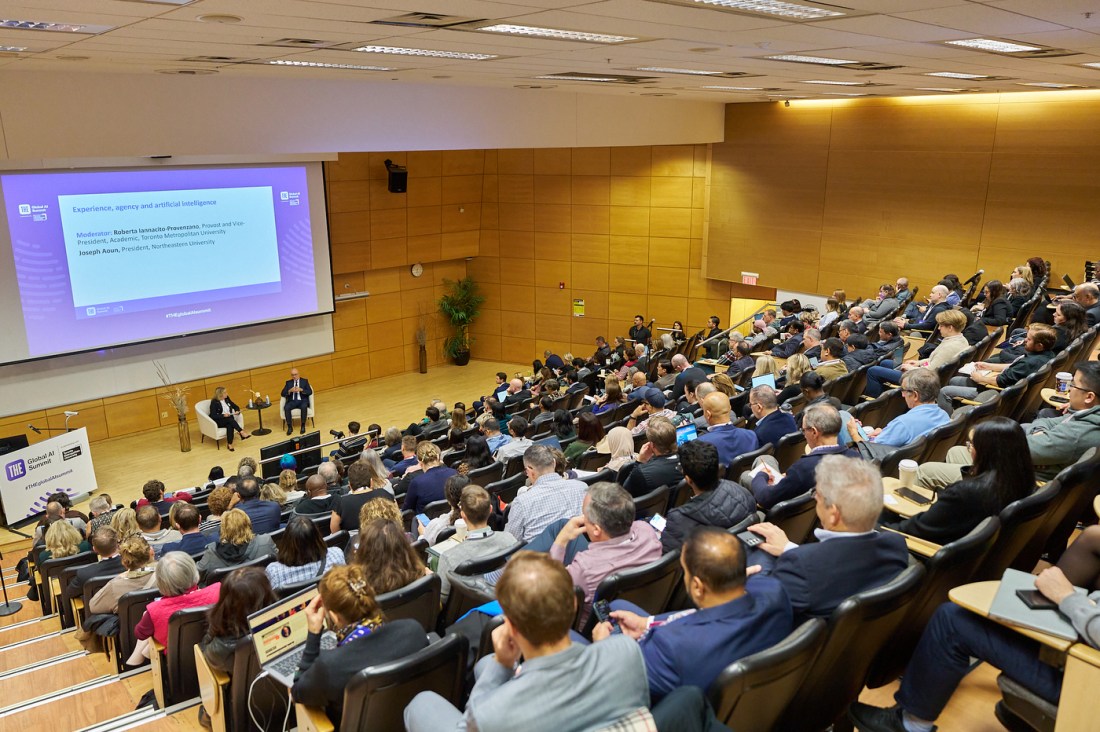President Aoun outlines roadmap for higher ed in the age of AI

Artificial intelligence can do your research and write your term paper. It cannot, however, interpret your professor’s expression when you hand that paper in.
Northeastern University President Joseph E. Aoun said higher education’s role is to teach how to navigate such a situation.
“The value of higher education is to raise those questions about the balance between human agency and AI agency,” Aoun said during a keynote address in Toronto on Tuesday. “What’s at stake for us in higher education is to remain relevant in the age of AI.”
Aoun is the author of “Robot-Proof: Higher Education in the Age of Artificial Intelligence.” On Tuesday, he was interviewed by Roberta Iannacito-Provenzano, provost of Toronto Metropolitan University, in a keynote fireside chat at the Times Higher Education Global AI Summit in Toronto. The event convenes leading minds from academia, industry and policy to explore AI’s most pressing challenges and groundbreaking advancements.
“This conversation sets the intellectual foundation for the entire summit,” Iannacito-Provenzano said in introducing Aoun. “We need to ask a deeper question: What is the role of the university and human agency in an AI world?”



Editor’s Picks
The answer is for higher education to promote the multi-pronged strategy implemented at Northeastern that incorporates the concept of humanics and focuses on experiential and lifelong learning, Aoun said.
In his book, Aoun defines humanics as the integration of three literacies: technological, data and human literacy. This approach enables students to transfer knowledge across domains and adapt to diverse challenges, Aoun said, and is a key component of a Northeastern education.
Humanics is reinforced through experiential learning such as through Northeastern’s co-op program that allows students to gain real-world professional experience by working at companies all over the world.
“The experiential component is essential,” Aoun said. “When we are getting the students to be immersed in an experiential setting, they are learning, practicing the human skills that give them an advantage over AI.”
Finally, higher education must provide opportunities for lifelong learning. For Northeastern, this has meant working with technology leaders in Seattle and Silicon Valley to open regional campuses to train the AI workforce, Aoun said, as well as developing competency-based learning opportunities and certificate programs across the university’s global network.
“Higher ed has a fundamental role to play,” Aoun said. “We have to rethink everything we are doing.”
“We need to be reskilled, upskilled and reinvent ourselves,” Aoun continued. “If universities don’t do that, who will?”










